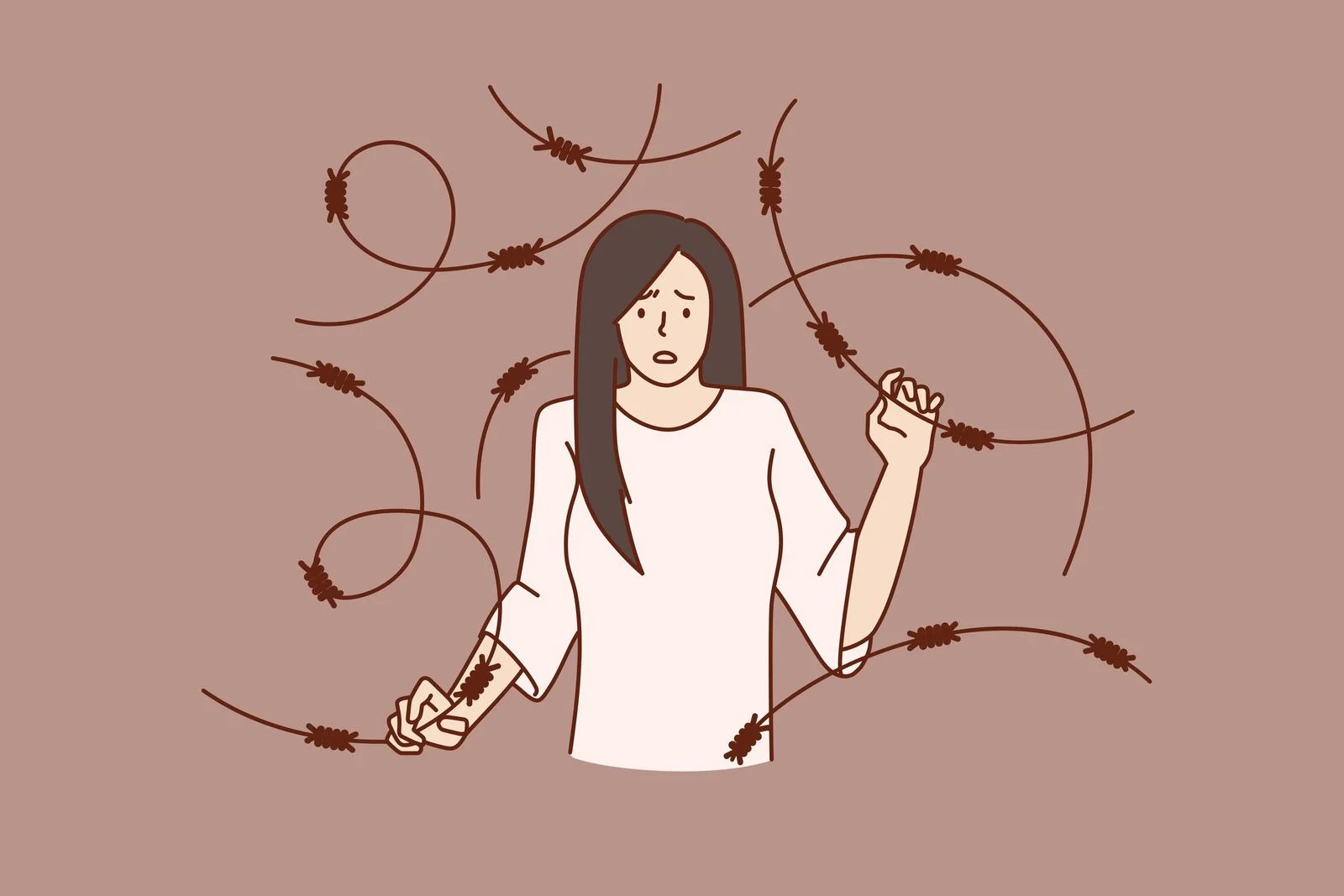This article will explore the role of mindfulness and self-regulation techniques in the treatment of impulse control disorder.
Introduction
Impulse control disorder treatment can involve holistic solutions. This article will elucidate the role of mindfulness and self-regulation strategies in the treatment of impulse control disorder to help improve quality of life.

Understanding Impulse Control Disorder
Impulse control disorders are mental health conditions where individuals have difficulty in self-regulation or self-control of behaviors and emotions.
-Symptoms and Manifestations
There are different types of impulse control disorders for which symptoms need to manifest for a minimum length of time, like six months for Oppositional Defiant Disorder or 12 months for conduct disorder.
Symptoms often include things like:
- Irritability
- Lies or theft
- Violation of rules
- Cruelty
- Argumentative behavior
- Vindictiveness
- Explosive anger
- Emotional outbursts
- Destruction of property
-Diagnostic Criteria
In order to be diagnosed with impulse control disorder, individuals will need to receive at least two types of assessments from things like:
- The Minnesota Impulse Disorders Interview
- The DSM-5
- Interviews with family to review family history and parenting styles
- Interviews with teachers to review developmental history and academic performance
Mindfulness-Based Approaches
One of the biggest challenges parents face when their child is diagnosed is finding the right impulse control disorder treatment. Even adults who receive a diagnosis will struggle with impulse control treatment because there is currently no FDA-approved treatment.
Thankfully, treatments for impulse control disorder can include mindfulness-based approaches and stress regulation techniques.
-Mindfulness Meditation
Mindfulness meditation is one of the more popular impulse control disorder treatments because it helps to ground your thoughts and emotions in the present moment, being mindful of the things around you.
When practicing mindful meditation, you can sit, stand, or lie down and:
- Close your eyes or bring your gaze about 3 feet in front of you.
- Focus on the sounds that you hear, initially the sounds that are closest to you, and after a few moments of reflection, the sounds that you hear farther and farther away.
- Reflect on the temperature of the space you are in and how it feels against your skin.
- Notice the sensation of the chair or the ground beneath you.
- Continue to bring your thoughts back to your breathing and the other senses in your immediate area each time you get distracted.
- Breathe regularly, breathing in for a count of four, holding it for a count of four, exhaling for a count of four, and holding it at the bottom for a count of four.
Mindful meditation is something you can practice at any time, no matter where you are.
- If you are thinking of butting into a conversation, you can pause and focus on your breathing.
- If you are in the middle of a confrontation and you’re thinking of escalating that confrontation, you can step away and take a few minutes to practice mindful meditation and refocus on what matters most.
-Mindful Coping Strategies
Daily mindfulness practices can help you increase personal awareness of your thoughts and emotions so that you can, by extension, reduce impulsivity.
This type of impulse control disorder treatment can be very challenging at first, but just a few minutes per day of practice regularly can alleviate many of the impulse-related symptoms, like
- Binge eating
- Abruptly changing plans
- Quitting your job
- Oversharing emotions
- Destroying property
For individuals who struggle with impulse disorders, mindful coping strategies can help you focus your attention on the present moment and increase your awareness of things like your environment, your body, your thoughts, and your emotions.
These coping skills might help you recognize that you are feeling irritable and anxious, and those feelings are manifesting in the form of a racing heart, a bit of a headache, and shaking hands. But instead of acting on those impulses without thinking, you put time and effort between your immediate emotions and your impulsive behaviors, which can help you avoid them entirely.

Self-Regulation Techniques
Self-regulation strategies differ from mindfulness in that they help you learn how to better regulate your emotions and behaviors. Cognitive behavioral therapy is the most common impulse control treatment.
-Cognitive-behavioral therapy (CBT)
With treatment for impulse control disorder, cognitive behavioral therapy can encourage better self-control. This involves many self-control exercises that center on the neurobiology of reward and impulse.
Cognitive behavioral therapy can help you avoid behaviors like:
- Destroying property
- Threatening harm to self or others
- Meaningless or risky sex
- Trying to constantly start over
Cognitive behavioral therapy can help you replace distorted thoughts and emotions with realistic and positive ones. Doing so helps you rationalize your thoughts instead of acting on irrational thoughts, and this, by extension, helps control impulsivity.
-Emotional Regulation Skills
Emotional regulation skills are mechanisms that you can use to control or modify your emotions. These skills help you accept how you are feeling, recognize what goals you want to achieve, and avoid impulsivity with a greater understanding of the negative emotions it brings.
Emotional regulation skills can help you avoid impulsive behaviors like:
- Oversharing your emotions
- Aggressive behavior
- Risk-taking
- Constantly joining or quitting things
But what are emotional regulation skills?
There are several types of emotional regulation skills that you might learn as part of your impulse control disorder treatment. The first is accepting your emotions. When you accept your emotions, you allow yourself to experience all of who you are, not just part of who you are.
By accepting emotions, you can also moderate how intense those emotions are. By moderating the intensity of your emotions, you can subsequently control your reactions and your behaviors.
This might include avoiding things like self-judgment or criticism for how you feel or what impulses you are struggling with.
In other cases, it might include changing the way you think, such as placing the phrase “I notice I am having the thought” before your emotions. This turns “I am so angry I want to smack that stapler out of her hand” into “I notice I am having the thought that I am so angry I want to smack that stapler out of her hand.”
This puts distance between the thought and the power it has on your emotions and, subsequently, on your impulses.
Summing up
Overall, if you are looking for impulse control disorder treatments, harnessing mindfulness and self-regulation can be a strong ally. There is great potential within these therapeutic approaches to empower individuals to regain control over their behaviors and lead fulfilling lives.



